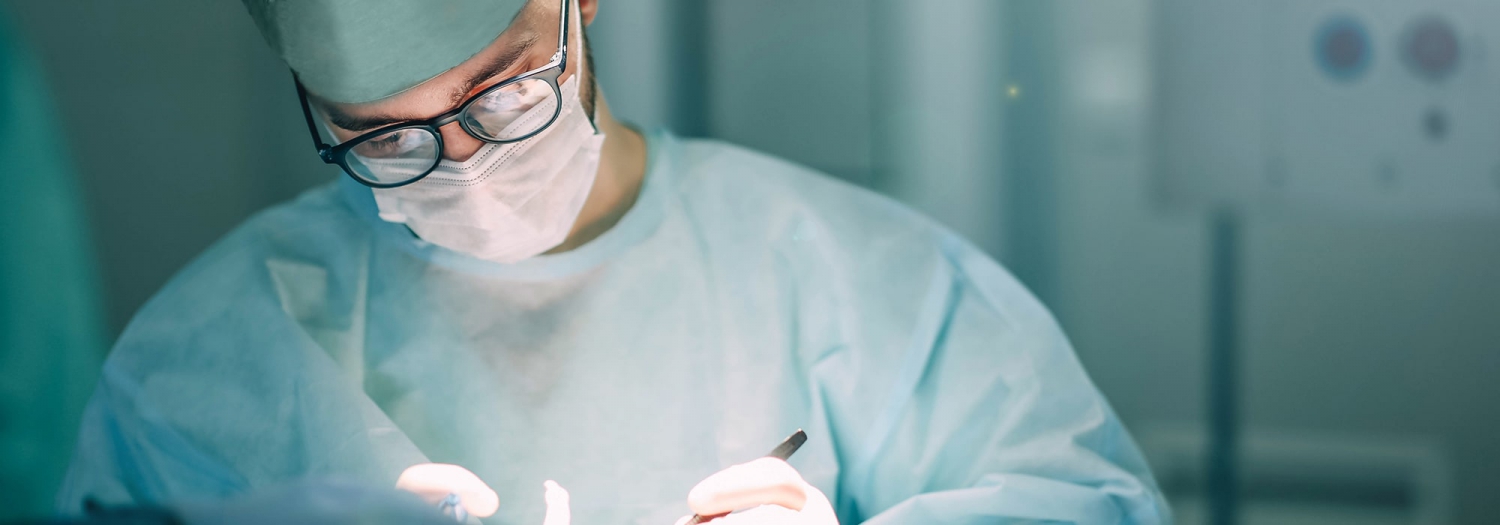Surgical technique 3: occipital decompression

Useful information
Who can benefit?Patients with headaches refractory to conventional medication (or requiring medication in excess of recommended maximum doses) originating in the occipital region (starting point in the nape of the neck). |
|
Type of hospitalizationOutpatient or inpatient for 1 to 2 days |
Duration of surgery1 to 2 hours |
|
Type of anesthesiaLocal or general |
Duration of resultsPermanent |
|
Duration of social eviction5 to 7 days |
PriceCHF 8,000 to 12,000 |
|
Duration of work stoppage10 to 14 days |
At Global Medical Institute, Drs. Pietramaggiori and Scherer specialize in microsurgical decompression of peripheral nerves and vessels in the head to relieve Arnold's neuralgia, chronic occipital migraines, chronic occipital headaches, migraines and vascular algias refractory to conventional neck treatments.
Who should undergo migraine surgery such as occipital decompression? Who are the “right candidates”? How is this technique minimally invasive? How do you identify your chronic occipital migraine? How does the procedure work? What are the after-effects?
In this article, we invite you to find out more about this surgical technique performed by Drs Pietramaggiori and Scherer.
Who should undergo migraine surgery such as occipital decompression?
Migraine surgery is intended for migraine patients for whom medication does not provide satisfactory pain relief (medication is not effective, or the side effects are too severe). The success of surgical treatment is intimately linked to the patient evaluation process, which is why good patient selection is key.
How to determine the right candidate for occipital decompression
If you're already under the care of a neurologist or family doctor, and have tried a number of drug treatments to date, but they haven't stopped your migraines, you’re the right candidate.
To determine whether your migraine is linked to the compression or irritation of one or more nerves, a test phase is necessary. After checking your medical history, we set up a test phase lasting an average of three months. During this phase, diagnostic tests and a specific clinical examination are carried out.
However, if during the test phase you experience a migraine, our specialist surgeons will perform one or more local anesthetics in the painful area. This means you can quickly become a good candidate if you respond positively (reduced pain) to this treatment during the tests.
Minimally invasive surgical techniques for your occipital migraine
Our specialist surgeons at Global Medical Institute use minimally-invasive techniques to treat your migraines, pain, chronic occipital headaches or facial vascular pain.
Under local anesthetic, Drs Pietramaggiori and Scherer decompress the nerves responsible for the pain. This technique does not burn or destroy any nerve branches, is painless and poses no risk to other nerves.
This technique is proposed when conventional treatments for chronic migraine or occipital headache and vascular angina or Arnold's neuralgia are ineffective for you.
How can you tell if you have a chronic migraine or occipital headache?
If, during attacks, your pain starts at a localized point in the nape of the neck at the base of the skull and radiates from the nape of the neck to the top of the head and into the temporal region, on one or both sides, often passing behind or through the eyes, you are probably suffering from chronic occipital migraine or Arnold’s neuralgia. Patients suffering from Arnold's neuralgia often have background pain, “all the time”, and acute, very high intensity attacks.
Tests will be performed prior to surgery to confirm the diagnosis of chronic occipital migraine or Arnold’s neuralgia. These tests may include Botox (botulinum toxin infiltration). Botulinum toxin infiltration for occipital headaches is also a treatment that can improve your pain for several months. Botulinum toxin infiltrations can be repeated several times and over a period of years. An alternative to botulinum toxin infiltration in the occipital area is cortisone infiltration: in this case, a significant improvement in pain is expected within 1 to 2 weeks. Minimally invasive surgery for occipital headaches aims to permanently reduce your pain.
How is occipital decompression performed?
Minimally invasive surgery to relieve Arnold’s neuralgia, chronic occipital migraines, chronic occipital headaches, migraines and vascular algias refractory to conventional treatment at the occipital level is performed through a small, invisible incision in the hair at the nape of the neck. Under the microscope, your expert Global Medical Institute surgeons free your nerves and blood vessels using tiny instruments and a very precise approach. After surgery, the operated area may remain swollen and sore for a few days, and you'll need only ice for relief.
What happens after occipital decompression?
You can continue to take your medication in case of crisis after surgery. The tiny sutures reabsorb. Scarsquickly become invisible. Pain attacks become progressively less severe over a period of about 3 months.
Your expert doctors at Global Medical Institute will follow you step by step throughout the post-operative phase, giving you all the information you need to make your convalescence as rapid as possible.
Normal activities can be resumed 5 days after your operation.
You will be able to resume sporting activities approximately 3 to 6 weeks after the operation.
Avenue Jomini 8
1004 Lausanne
Suisse
+41 (0)21 653 29 21
Mon9h-12h 14h-18h
Tue9h-12h 14h-18h
Wed9h-12h 14h-18h
Thu9h-12h 14h-18h
Fri9h-12h 14h-18h












